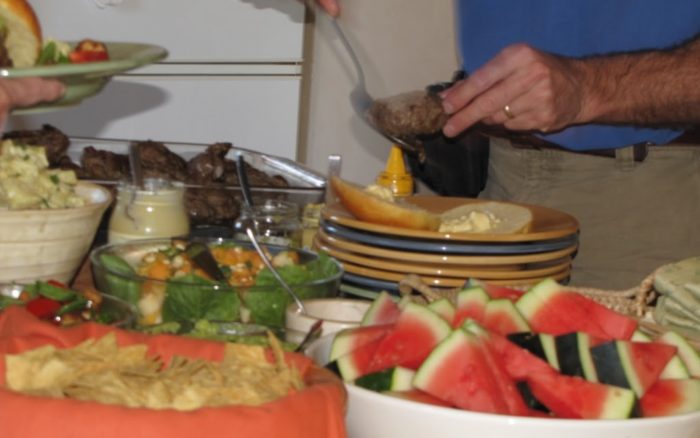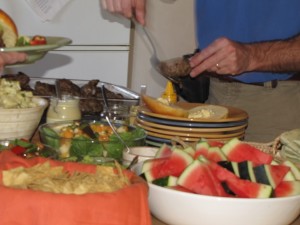“…the psychological problem of our age is a spiritual problem, a religious problem,” (C. G. Jung Speaking:Interviews and Encounters)
Enough
Some many years ago I was invited to a potluck at a friend Jan’s home. Jan had made a dish that was one of her eight-year-old daughter’s favorites, and when Kayla saw the dish, she quickly dipped into it, asking her mother how much she could have. Most of us would probably have told her, followed up with that’s enough! But Jan said, “Honey, see how many are here, and then you decide.”
Unfortunately, we have become addicted to easy access to cheap possessions and energy. To ask these questions means using less! Standard of living is not based on an experience of wellbeing, nor on how much our actions are in balance with everything around us.
A new ethic is in its infancy, incubated not only by necessity, for we cannot all live on this planet at the lifestyle we aspire to for very long, but also by the strange unhappiness that appears to be plaguing the so-called affluent. This ethic is one of reconsidering wellbeing. In a University of Sheffield study, “The Happy Planet Index” (Resurgence, No. 269, p. 20-21), three goals were considered: high life satisfaction, high life expectancy (which appears to go with a sense of overall happiness), and one-planet living. United States is well down the list, 114th place out of 143. European countries were somewhere in the middle. Latin American and Caribbean nations have the highest score of any region, an average of 59.
Another UK study found that self-evaluated happiness does not increase beyond a very modest income (about $30,000 USD a year or less) (Resurgence, No. 269, p. 29). Radical ecology (of which I would place David Abram as a thought leader, —order your tickets for our dialogue February 10 in Berkeley) draws on this, separating acquisition from wellbeing once basic needs are met. There is a growing push for decreasing economic growth as a way to support sustainability— and well being.
What in humans drives us to use more than is our share?
I return to C.G. Jung’s quote from his 1934 interview, “Is the World on the Verge of Spiritual Rebirth?: “…the psychological problem of our age is a spiritual problem, a religious problem.” He continues, “Man today hungers and thirsts for a safe relationship to the psychic forces within himself. …Science has told him there is no God, that matter is all there is. This has deprived humanity of its blossom, its feeling of well-being and of safety in a safe world” (C. G. Jung Speaking:Interviews and Encounters, p.68).
If “matter is all there is”, then is “matter” the only answer for our appetites?
When I consider this issue of using less, I remember a three week backpacking trip co-leading a group of teenagers through the high Sierra. I started with 40 pounds on my back (too much for my knees!), but I was surprised at how little I actually needed. Many of the days were hard, and I was exhausted. Yet still, these many years later, for I was 26 at the time, I remember each day. I can return to the evening I watched the sun paint granite boulder mountains pink and orange and to the anticipated afternoon treat of powdered lemonade over snow. I remember how we ran low on food and had to share, knowing this would mean we each got less than we needed. Yes, we lost weight! Yet it was a time that formed my life, honing my ability to do hard things while introducing me to the ruthlessness of Sierra wilderness, an early experience of relationship to Self (as in Jung’s concept of Self as central organizing principle of the individual).
It seems in the absence of abundance of food and possessions, I acquired an early experience of abundant inner strength and an ethic of interconnectedness.

